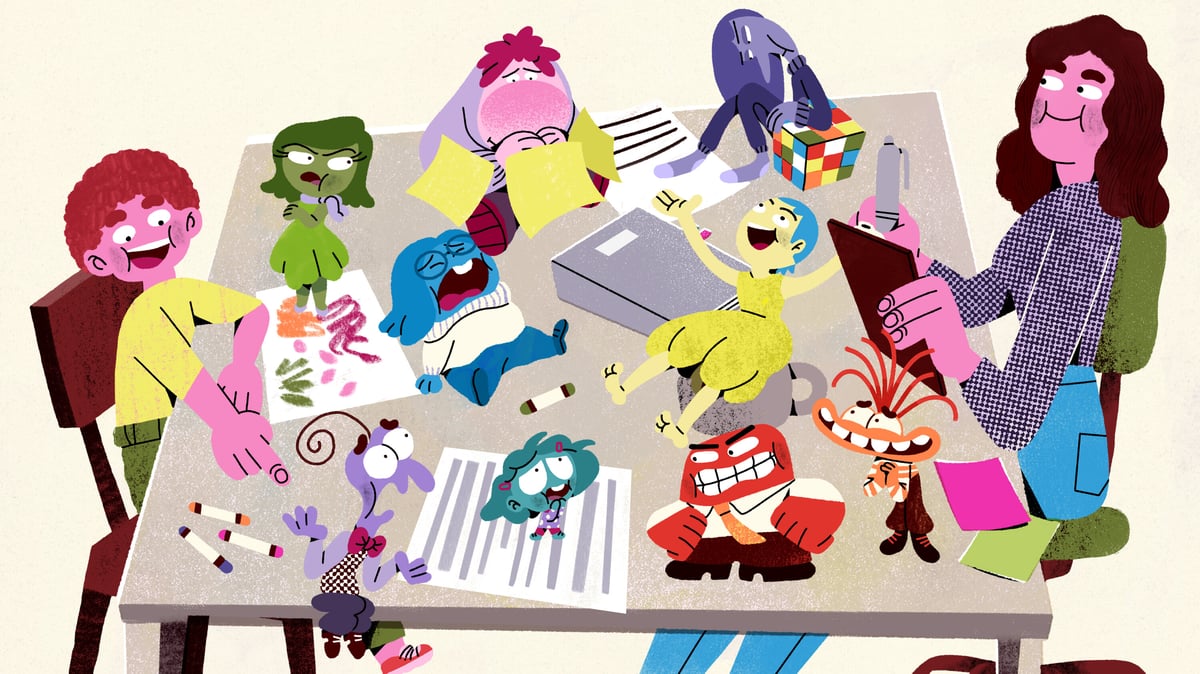Pixar’s Inside Out movies have changed how therapists talk about feelings with their patients. And not just kids: “I’ve been stealing lines from the movie and quoting them to adults, not telling them that I’m quoting.”



Advertise here with Carbon Ads
This site is made possible by member support. 💞
Big thanks to Arcustech for hosting the site and offering amazing tech support.
When you buy through links on kottke.org, I may earn an affiliate commission. Thanks for supporting the site!
kottke.org. home of fine hypertext products since 1998.





Comments 3
Am I alone in thinking that this might not be a good thing?
If Inside Out is being used as a way to more easily "onboard" people into therapy, then it's great. If lines from the movie are being used as a substitute for therapy, then I'm a little more doubtful.
"Cars" was a new movie when my autistic son was young, and we had to play it *every* afternoon. It got to the point at which we were all throwing out random lines from the movie all the time and that's when it hit me: he was using it as a way to talk about emotions. While real life was unpredictable, the patterns in the movie would be reassuringly the same day after day. If he then recognized an emotion inside him that echoed one from the movie, he could just repeat the line of dialogue and express himself. My kids haven't glommed onto the Inside Out movies but I'd bet they'd be an even better way to understand feelings.
Hello! In order to comment or fave, you need to be a current kottke.org member. If you'd like to sign up for a membership to support the site and join the conversation, you can explore your options here.
Existing members can sign in here. If you're a former member, you can renew your membership.
Note: If you are a member and tried to log in, it didn't work, and now you're stuck in a neverending login loop of death, try disabling any ad blockers or extensions that you have installed on your browser...sometimes they can interfere with the Memberful links. Still having trouble? Email me!
In order to comment or fave, you need to be a current kottke.org member. Check out your options for renewal.
This is the name that'll be displayed next to comments you make on kottke.org; your email will not be displayed publicly. I'd encourage you to use your real name (or at least your first name and last initial) but you can also pick something that you go by when you participate in communities online. Choose something durable and reasonably unique (not "Me" or "anon"). Please don't change this often. No impersonation.
Note: I'm letting folks change their display names because the membership service that kottke.org uses collects full names and I thought some people might not want their names displayed publicly here. If it gets abused, I might disable this feature.
If you feel like this comment goes against the grain of the community guidelines or is otherwise inappropriate, please let me know and I will take a look at it.
Hello! In order to leave a comment, you need to be a current kottke.org member. If you'd like to sign up for a membership to support the site and join the conversation, you can explore your options here.
Existing members can sign in here. If you're a former member, you can renew your membership.
Note: If you are a member and tried to log in, it didn't work, and now you're stuck in a neverending login loop of death, try disabling any ad blockers or extensions that you have installed on your browser...sometimes they can interfere with the Memberful links. Still having trouble? Email me!